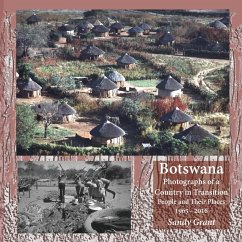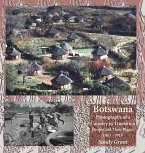Botswana's rapid transition between 1965 and 2016 from one of the poorest countries in the world to one rated as middle income has been extraordinary. Fifty years of change has seen the widespread disappearance of coal-fired locomotives and popularly used passenger trains, and ox drawn wagons. Blacksmiths, paraffin lamps, rondavels and thatched buildings, lime, women carrying buckets of water, metal water tanks have gone. The list goes on: the displacement of the round by the rectangular, migrant labour, hand cranked telephones and party lines, older men in army great coats, school children with bare feet, guttering and down pipes, granaries, the decoration of the lelapa, indigenous foodstuffs, the sub-language fanagalo, the crafts made for domestic needs. Yet more: changes in clothing, housing, property and vehicle ownership, means of entertainment, untarred main roads, do it yourself housing and in many places, general stores. The majority of the photos selected are of people. This is deliberate. It means that this book has no photographs that are routinely included in other books - the country's marvellous wilderness and wildlife, the Okavango and the Kgalagadi, the sand dunes and places of great natural beauty.
Hinweis: Dieser Artikel kann nur an eine deutsche Lieferadresse ausgeliefert werden.
Hinweis: Dieser Artikel kann nur an eine deutsche Lieferadresse ausgeliefert werden.








